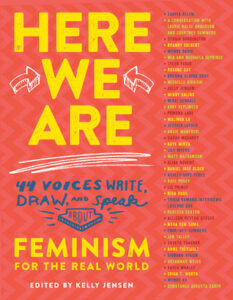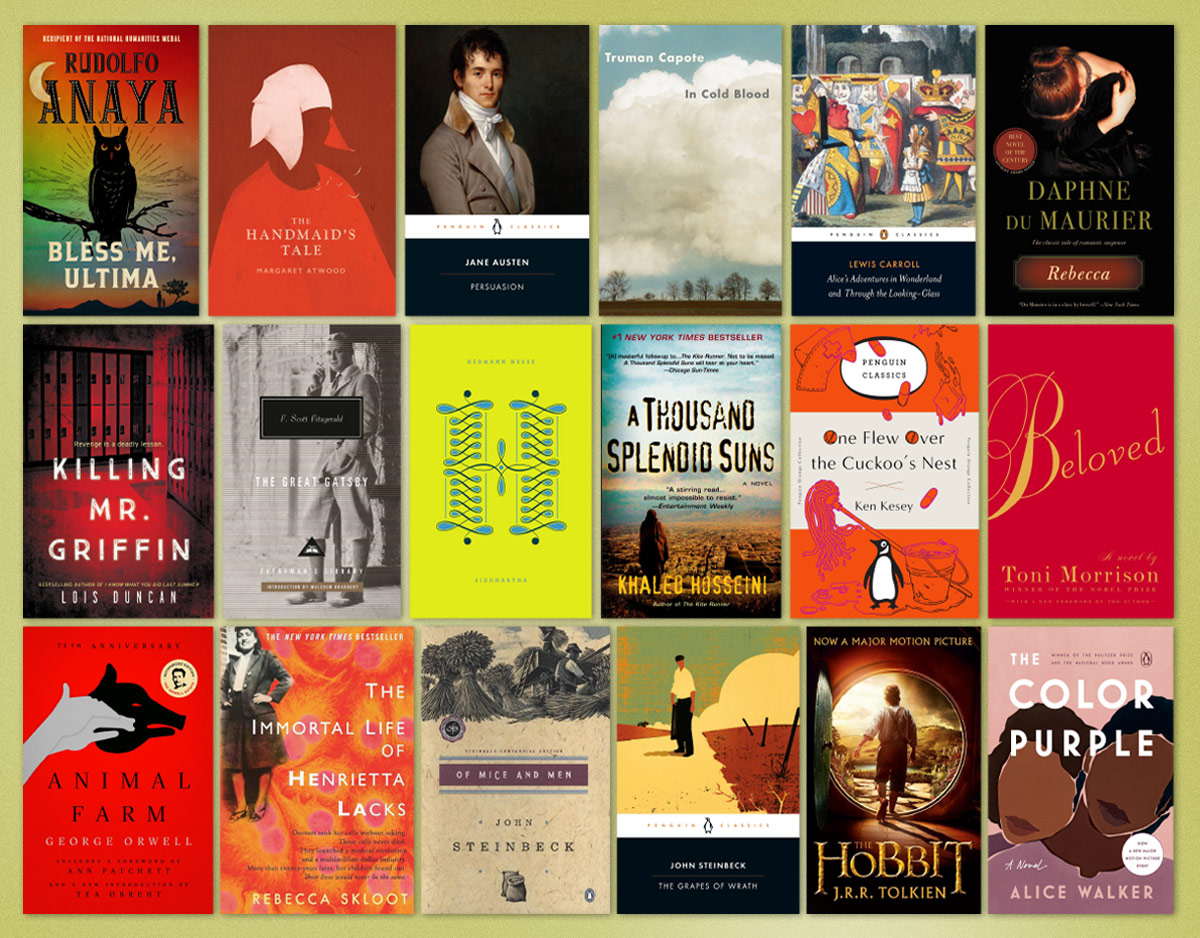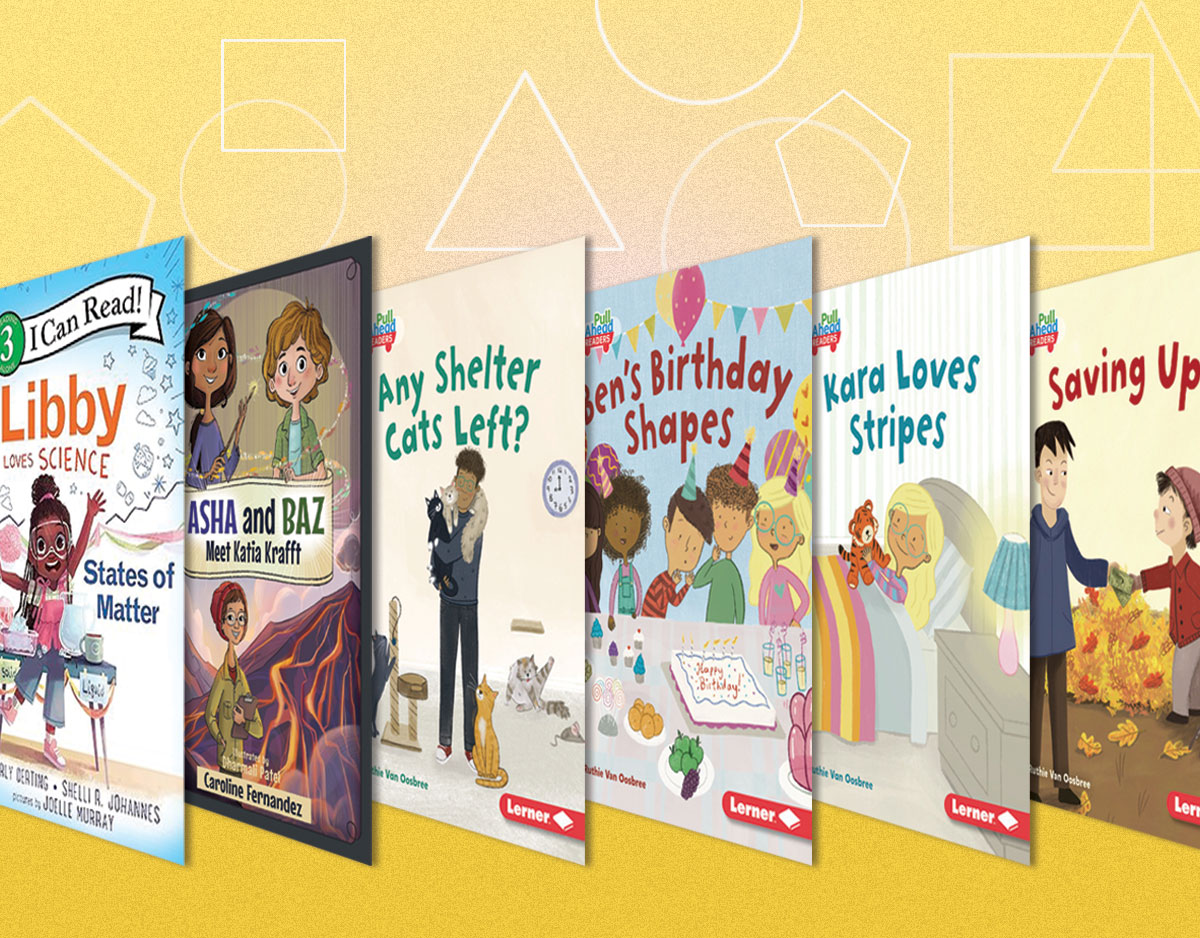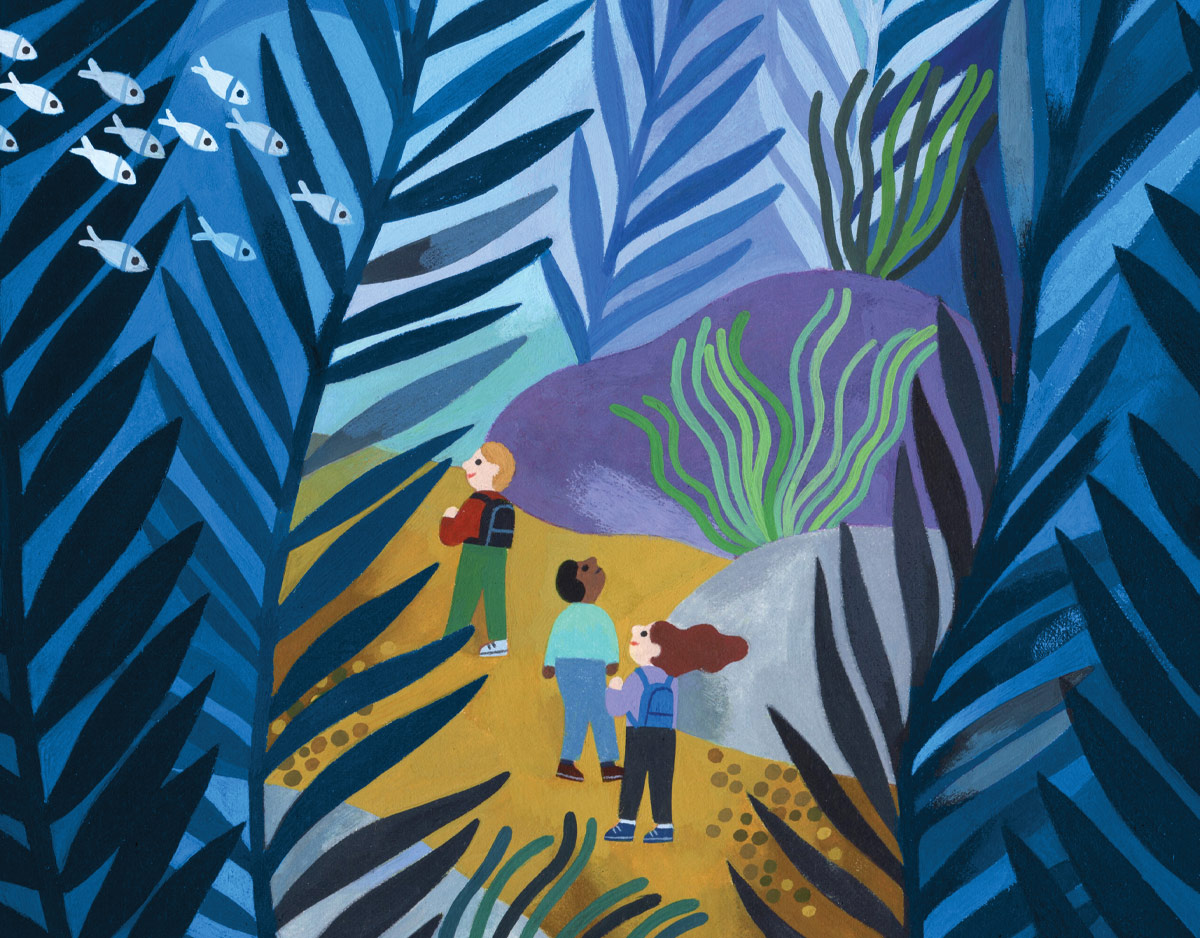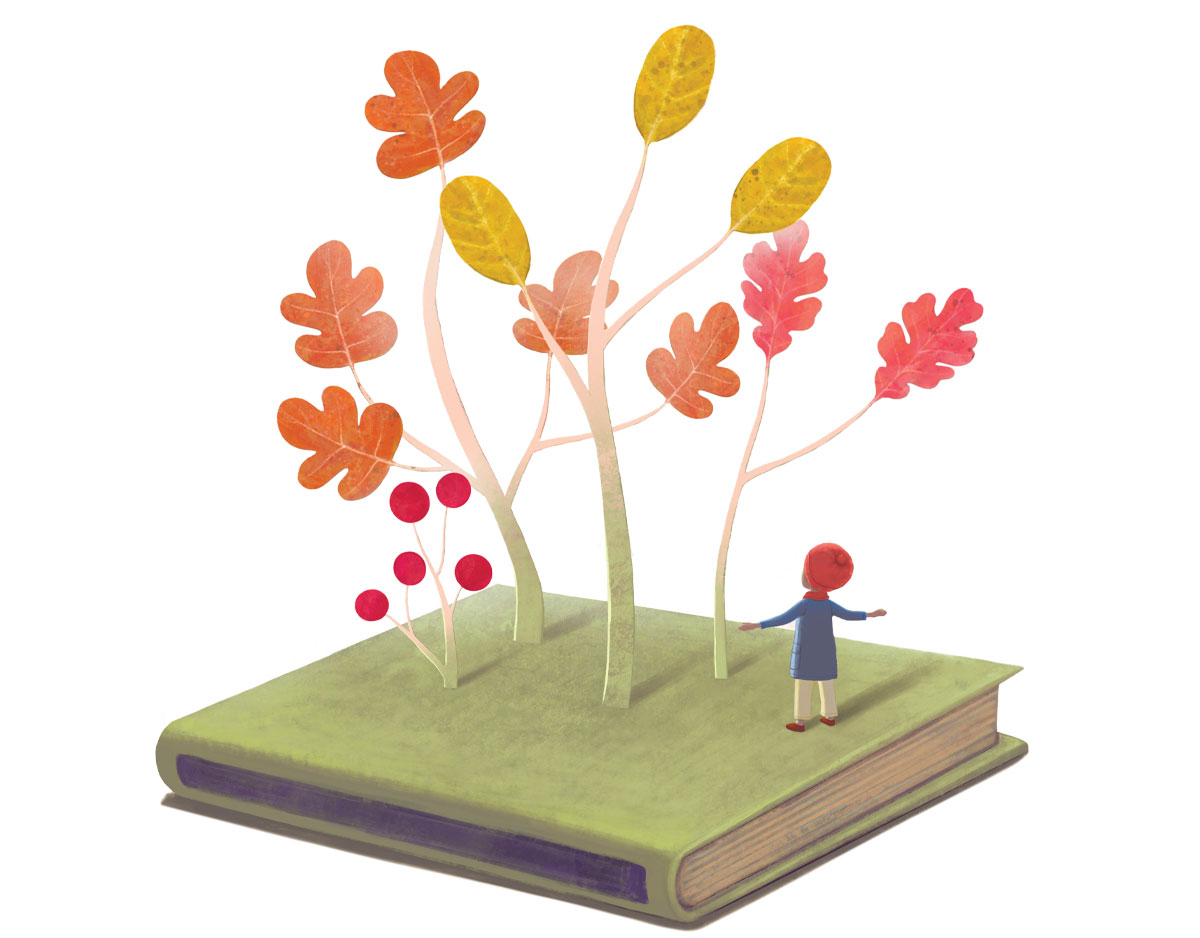Feminism is for Everyone: HERE WE ARE editor Kelly Jensen interviews contributor Daniel Jose Older
It’s day three of our week celebrating the release of Here We Are: Feminism for the Real World edited by Kelly Jensen. Today, Kelly joins us as she interviews one of the contributors, Daniel Jose Older. Be sure to visit our post from day one to enter to win a Feminist t-shirt!
“In our activism, it’s important we celebrate”: Daniel José Older on Feminism and Social Justice
____________________
Daniel José Older’s essay in Here We Are: Feminism for the Real World tackles the topic of the journey; he explores how he envisions feminism as a big, beautiful room where people of all strokes are dancing and enjoying themselves—taking turns showing off their moves when they feel so inspired—and how every individual in that room got there in their own way. From there, his essay expands to discuss how he himself found feminism and how it was art that really made it click.
ADVERTISEMENT
ADVERTISEMENT
Here’s a short excerpt from his essay:
Patriarchy has sharp teeth. The borders it draws around our identities and hearts are unforgiving and lined with broken glass and barbed wire. Chimamanda Ngozi Adichie calls masculinity “a hard, small cage.” Our patriarchal gender norms, the rules that tell us how to fit into pre-assigned boxes labeled “man” and “woman,” have nothing to do with love and everything to do with power. They guide our steps and demolish our lives, our sense of self, our relationships. Because we have subscribed to them as a society, because they are normalized, they seep into our hearts and minds from our earliest contact with the world around us. They take root there, then metastasize.
My own journey to feminism required looking both outward and inward. It is an ongoing process that means learning and relearning how to listen, when to shut up, when to speak up. There is no map for the work of undoing that trauma within us—like all the great journeys, it is a road we make by walking. This is terrifying at first; there’s a false comfort in the sense that if we just follow these simple steps, we will get where we need to go.
But the harder truth contains its own truer joy—the beautiful struggle.
Daniel is no stranger to social justice, just as much as he’s no stranger to feminism. His work in protest, his work as a paramedic, and his work as a creative writer have all intersected to form his beliefs and guide his actions for doing right. His essay shows how no single path is the correct one; what matters is that the journey leads to this room full of people eager to advocate for equal rights and equal access for all.
Kelly Jensen: Your essay is about the moment when you came to understand “feminism” and owned the term and system of beliefs for yourself. Your vision of feminism as a giant party, full of those taking turns with their own moves, is one that really captures not just feminism, but social justice more broadly. Where did this sort of grand vision emerge in relation to your understanding of feminism?
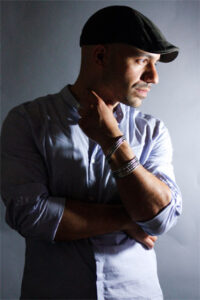
Daniel José Older: In our activism, it’s so important that we celebrate. It gets really easy to be overwhelmed, particularly these days, with all the terrible things happening and feel like we’ve already lost before the struggle has even begun. But part of being alive and part of resistance is celebration. This also means we honor our different paths, our different voices — we can’t privilege one path or voice over another, as we have in the past. That will destroy us. So I believe in this great, celebratory room, and I think in order to really manifest that vision we have to be very self-aware, very accountable, very real with ourselves about where we are and where we’ve been and that means having some of the difficult conversations we’ve seen pop up in the past couple years especially.
Kelly: How and where do you see art, be it visual or verbal or written, as intersecting with social justice? What might be a couple great contemporary examples?
Daniel: We have to approach our work in the world, whether it’s organizing a rally or running workshops or political activism, with the same creativity we approach our artwork. There’s long been this idea that activism is this one cookie-cutter thing: do A then B then C and that’s activism. No! We have to be as interconnected and audacious and outrageous and most of all creative in our approach as possible, in part because oppression is itself quite interconnected and creative in thinking up ways to keep folks down and turn us against each other. Art and activism are not only not opposing elements, they are in fact one.
Kelly : In what ways have you incorporated social justice/feminism into your everyday life?
Daniel: I believe if we’re not approaching life in general, whether it’s how we live, how we love, how we work, how we make art, from a feminist or womanist perspective, we are by default doing it from a sexist perspective. That is the status quo, it’s what we’re taught. To move beyond patriarchy we have to actively engage ourselves to think critically about what we’re doing and how we do it. So for me, being a cis/straight male, that means I have to both check in and check myself regularly to make sure I’m not enacting the violent behavior that is a part of our legacy. It means I have to be able to listen and step back, whether that’s in a social space or an activist one or an artist one.
Kelly: What are some of your favorite books and/or resources that would benefit all readers eager and curious about social justice/feminism?
Daniel: Both Twitter and Tumblr are tremendous gathering places of brilliant feminist thinkers. Yes there are trolls, there are downsides, there are disputes, but over all, when we step back, what we’re seeing is an amazing, global conversation about feminism and patriarchy and its intersections with race and class that is very needed. I’ve also learned a lot from great books like Joan Morgan’s When Chickenheads Come Home To Roost, bell hooks, the anthology This Bridge Called My Back, Beyoncé’s Lemonade.
ADVERTISEMENT
ADVERTISEMENT
Kelly: How can young readers and those who advocate on their behalf better prepare themselves to be actively engaged with social justice and feminism? You came to your understanding in your mid-20s; we’re seeing teens today standing their ground and fighting for the causes they believe in (including the protest walkouts and more in the aftermath of the election). Do you think today’s teens are more engaged with the movement? Any idea why that might be and how it can be actively cultivated and encouraged?
Daniel: They are much more engaged and it’s amazing to behold. It gives hope, to be honest. I see the way young folks are being badass and unstoppable and real with each other and the world and I feel like somehow, we’re gonna be alright. I give a lot of credit to social media for that, it’s allowed access to this conversation in a way that we’ve never seen before. It’s an exciting time to be alive and be a feminist.
Kelly: What is the biggest thing you hope readers take away from your essay in Here We Are?
Daniel: I hope they see that feminism, as bell hooks said years ago, is indeed for everybody. That there are many, many ways to jump into the conversation and change the world.
Meet Daniel Jose Older
Daniel José Older is the author of the young adult novel Shadowshaper (Scholastic, 2015), a New York Times Notable Book of 2015, which was shortlisted for the Kirkus Prize in Young Readers’ Literature and the Andre Norton Award, and named one of Esquire’s 80 Books Every Person Should Read. He also writes the Bone Street Rumba urban fantasy series. You can explore his thoughts on writing, read dispatches from his decade-long career as an NYC paramedic, hear his music at danieljoseolder.net, and find him on Twitter at @djolder.
Filed under: #SJYALit, Uncategorized
About Karen Jensen, MLS
Karen Jensen has been a Teen Services Librarian for almost 30 years. She created TLT in 2011 and is the co-editor of The Whole Library Handbook: Teen Services with Heather Booth (ALA Editions, 2014).
ADVERTISEMENT
ADVERTISEMENT
SLJ Blog Network
One Star Review, Guess Who? (#211)
Cover Reveal and Q&A: Dusti Bowling’s Latest – The Beat I Drum (Apr 2025)
Kevin McCloskey on ‘Lefty’ | Review and Drawn Response
Notable NON-Newbery Winners: Waiting for Gold?
The Seven Bills That Will Safeguard the Future of School Librarianship
Gayle Forman Visits The Yarn!
ADVERTISEMENT


